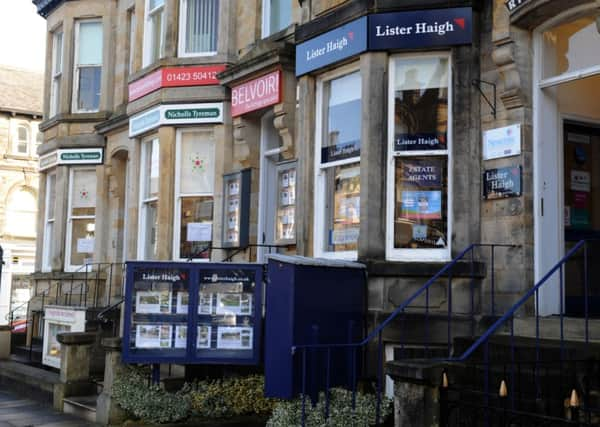Country becoming nation of renters


Among England’s estimated 22.6 million households, the proportion who are home-owners has been shrinking over the last decade.
The English Housing Survey figures for 2013/14, published by the Government, also show how the number of households who own their home outright with no mortgage overtook the number of home-owners who have a loan.
Advertisement
Hide AdAdvertisement
Hide AdOf the 14.3m households who are owner-occupiers, 7.4m own their home outright and 6.9m own their home with a mortgage.
Campaigners said the figures show the country is in danger of “winding back the clock on home ownership”, and edging closer to becoming a nation of renters.
Nineteen per cent of households, or 4.4m, were renting privately in 2013/14, up from 18 per cent a year earlier, and the proportion of households renting social housing remained steady at 17 per cent, or 3.9m.
The last time that owner-occupation levels were lower was in 1985, when they were at 62 per cent, and it is people aged 25-34 who are more likely to be renting privately than buying their own home.
Advertisement
Hide AdAdvertisement
Hide AdThe proportion of young people in this age group who are privately renting has more than doubled since 2003/04, with almost half (48 per cent) of all households where people are aged 25 to 34 renting privately in 2013/14. Over the same period, owner-occupation levels in this age group fell from 59 per cent to 36 per cent.
David Orr, chief executive of the National Housing Federation, said: “People in their thirties are seeing their chance of home ownership slip through their fingers as they struggle to save for the enormous deposits and mortgage payments, no matter how hard they work.
“As house prices continue to rise, we’re in danger of winding back the clock on home ownership, with only the privileged few having any hope of affording it.”
Anna Brosnan, the Federation’s head of campaign, warned of the repercussions of the current housing market in Yorkshire, with Land Registry figures showing average house prices in Yorkshire and the Humber to be £159,180.
Advertisement
Hide AdAdvertisement
Hide AdShe said: “We are in danger of pricing out younger generations from places like York, Harrogate and Leeds where house prices are as high as ten times the average salary.
“In Leeds, where the average salary is £24,627, aspiring homeowners need to be earning nearly £40,000 for an average mortgage.”
The report accompanying the English Housing Survey said the introduction of buy-to-let mortgages is among the factors which have helped strong growth in the private rental sector.
Meanwhile, the Right to Buy scheme has encouraged social tenants to buy their home at a discounted price since the 1980s, paving the way for the proportion of households in the social sector to fall from 31 per cent in 1980 to 19 per cent in 2000.
Advertisement
Hide AdAdvertisement
Hide AdThe Council of Mortgage Lenders recently reported that more people in the UK took their first step on the property ladder last year than at any other time since 2007.
But as house prices have seen some sharp increases in recent months, a report from the Office for National Statistics showed a first time buyer typically faced paying 9.5 per cent more for a property in December than they would have done a year earlier.